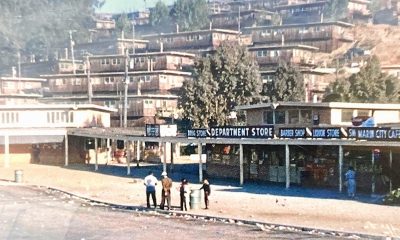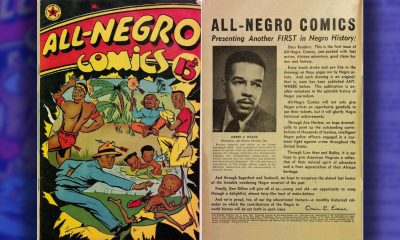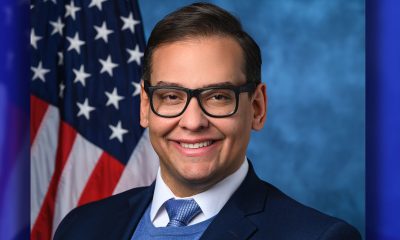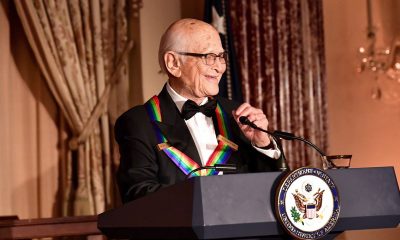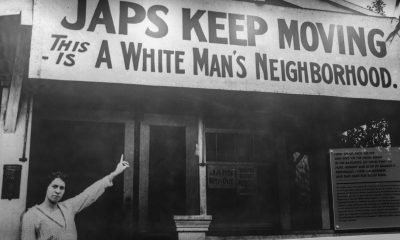World
In Israel, Biracial German Author Probes Her Nazi Heritage

In this Tuesday, Feb. 10, 2015 photo, German author Jennifer Teege poses during the Jerusalem International Book Festival. Tiege is the granddaughter of Amon Goeth, the notoriously cruel camp commander of the Plaszow concentration camp portrayed by actor Ralph Fiennes in the Academy Award-winning film “Schindler’s List.” (AP Photo/Dan Balilty)
ARON HELLER, Associated Press
JERUSALEM (AP) — When Jennifer Teege stumbled upon a book in a Hamburg library seven years ago, the biracial German woman who was given up for adoption as a child was stunned to discover a deep family secret that shook her to the core.
Her maternal grandfather was the brutal SS Commander Amon Goeth, who ran a concentration camp in Plaszow, Poland, in World War II and whose cruelty was so chillingly portrayed by actor Ralph Fiennes in the 1993 Oscar-winning movie “Schindler’s List.”
“It really turned my world upside down,” said Teege, who has written a memoir about her soul-searching experience entitled “My Grandfather Would Have Shot Me” — a reference to the Nazis’ racist ideology.
In Israel, her story resonates on many levels. The country is home to the world’s largest community of Holocaust survivors. It is also the place where Teege lived as a student for several years, became fluent in Hebrew and first saw Steven Spielberg’s epic movie — long before she knew the dark secret of her origins.
Discovering that she traced her lineage to a man described as “the symbol of evil” sent Teege into intensive psychotherapy. Her therapist broke down in tears when he heard her tale, she said.
“It was very difficult for me to deal with this because I have a very unique relationship to Israel and with the Jewish people,” said the 44-year-old Teege, now a mother of two. She spoke to The Associated Press on the sidelines of the Jerusalem International Book Fair that showcased her book’s Hebrew edition. An English version is coming out in April.
Goeth was notorious for shooting Jewish inmates for sport at the concentration camp in Plaszow, a Krakow suburb, and for getting his dogs to attack them. The German industrialist Oskar Schindler saved more than 1,200 Jews by bribing Goeth and other Nazis to have them work in his factories rather than be sent for extermination in death camps.
Known as the “Butcher of Plaszow,” Goeth was convicted as a war criminal and hanged in 1946.
Teege’s astounding revelation and the book that followed were just the latest chapters in her troubled biography, from a childhood spent in foster homes to a prolonged estrangement from both her biological parents, to her struggles with prejudice in Germany because of her dark skin and the suicide of her grandmother, with whom she was very close.
It all led to several bouts of depression, but she said that finding out about her ancestry helped bring a “sense of closure.”
“Life is like a puzzle, so today I have a lot of pieces that were missing,” she said. “It is a story that you would never ever invent because no one would believe that it is true. But it is true.”
Teege’s maternal grandmother, Ruth Irene Kalder, was a secretary in Schindler’s factory and it was he who introduced her to Goeth, whose wife remained in Austria while he ran Plaszow.
Their affair produced Teege’s mother, Monika Hertwig, whose memoir “I Have to Love My Father, Right?” was the book Teege found in the Hamburg library that set her on her journey.
Teege’s mother had a brief affair with a Nigerian student but was already in another relationship by the time Teege was born in 1970, and she was sent to an orphanage as an infant. She maintained occasional contact with both her mother and grandmother until she was formally adopted at the age of seven. When she was 13, she found out that her grandmother had killed herself and only much later in life did she track down her biological father in Africa.
In her early 20s, long before discovering her family legacy, she followed a friend to Israel, where she learned Hebrew and completed an undergraduate degree at Tel Aviv University. She then returned to Germany, married and started a family.
She sees a physical resemblance between herself and Goeth but believes he would turn over in the grave if he learned he had a black granddaughter with close ties to Israel and Jews.
She said one of the things that motivated her to write her book was reading an interview with the grandniece of Nazi leader Hermann Goering, who told the AP in 2008 that she had herself sterilized to end her blood line.
Teege rejects the premise of such an extreme measure.
“You decide who you want to be. It is your character and you set an example that you can be different. It is not connected to genes,” she said.
The hardest part for Teege was reconciling how Goeth, a killer of Jews, was also the man her grandmother deeply loved.
“I cannot understand how she could have loved him. I think this was the biggest problem that I had,” she said.
In Israel, Teege met with one of the few people left in the world who actually came face-to-face with Goeth.
Rena Birnhack, an 88-year-old Holocaust survivor who was on Schindler’s list — the famous list naming those who were to be spared for labor — remembers being confronted by a tall, daunting Goeth at the “selection” line after the Krakow ghetto was liquidated.
Goeth decided who would be deported to Auschwitz and who would live a bit longer in his labor camp. Under a blanket, Birnhack held two puppies and offered them as a gift. Goeth let her live.
Decades later, reading Teege’s book, Birnhack found out Goeth kept the puppies and Kalder raised them in their home inside the Plaszow camp. She asked her granddaughter to track down the author and they met in the Israeli city of Haifa last week.
“All the memories came rushing back,” an emotional Birnhack said of the meeting. “Among the hundreds that he killed, he kept me alive … I can’t forgive the Germans for what they did to us but I have sympathy for Jennifer.”
___
Follow Heller on Twitter @aronhellerap
Copyright 2015 The Associated Press. All rights reserved. This material may not be published, broadcast, rewritten or redistributed.
Barbara Lee
Congresswoman Barbara Lee Issues Statement on Deaths of Humanitarian Aid Volunteers in Gaza
On April 2, a day after an Israeli airstrike erroneously killed seven employees of World Central Kitchen (WCK), a humanitarian organization delivering aid in the Gaza Strip, a statement was release by Rep. Barbara Lee (D-CA-12). “This is a devastating and avoidable tragedy. My prayers go to the families and loved ones of the selfless members of the World Central Kitchen team whose lives were lost,” said Lee.

By California Black Media
On April 2, a day after an Israeli airstrike erroneously killed seven employees of World Central Kitchen (WCK), a humanitarian organization delivering aid in the Gaza Strip, a statement was release by Rep. Barbara Lee (D-CA-12).
“This is a devastating and avoidable tragedy. My prayers go to the families and loved ones of the selfless members of the World Central Kitchen team whose lives were lost,” said Lee.
The same day, it was confirmed by the organization that the humanitarian aid volunteers were killed in a strike carried out by Israel Defense Forces (IDF). Prior to the incident, members of the team had been travelling in two armored vehicles marked with the WCF logo and they had been coordinating their movements with the IDF. The group had successfully delivered 10 tons of humanitarian food in a deconflicted zone when its convoy was struck.
“This is not only an attack against WCK. This is an attack on humanitarian organizations showing up in the direst situations where food is being used as a weapon of war. This is unforgivable,” said Erin Gore, chief executive officer of World Central Kitchen.
The seven victims included a U.S. citizen as well as others from Australia, Poland, the United Kingdom, Canada, and Palestine.
Lee has been a vocal advocate for a ceasefire in Gaza and has supported actions by President Joe Biden to airdrop humanitarian aid in the area.
“Far too many civilians have lost their lives as a result of Benjamin Netanyahu’s reprehensible military offensive. The U.S. must join with our allies and demand an immediate, permanent ceasefire – it’s long overdue,” Lee said.
Bay Area
Nigerian Bank Chief Killed in Helicopter Crash on Way to Superbowl XVIII
According to the San Bernardino County Sheriff’s Dept., the crash occurred near Nipton, on the edge of the Mojave Desert Preserve. The poor weather conditions — rain, wind and snow showers—may have contributed to the accident, although the investigation is not complete. All six aboard were killed. Herbert Wigwe, 57, founded Access Bank in 1989, and it became the country’s largest competitor, Diamond Bank in 2018.
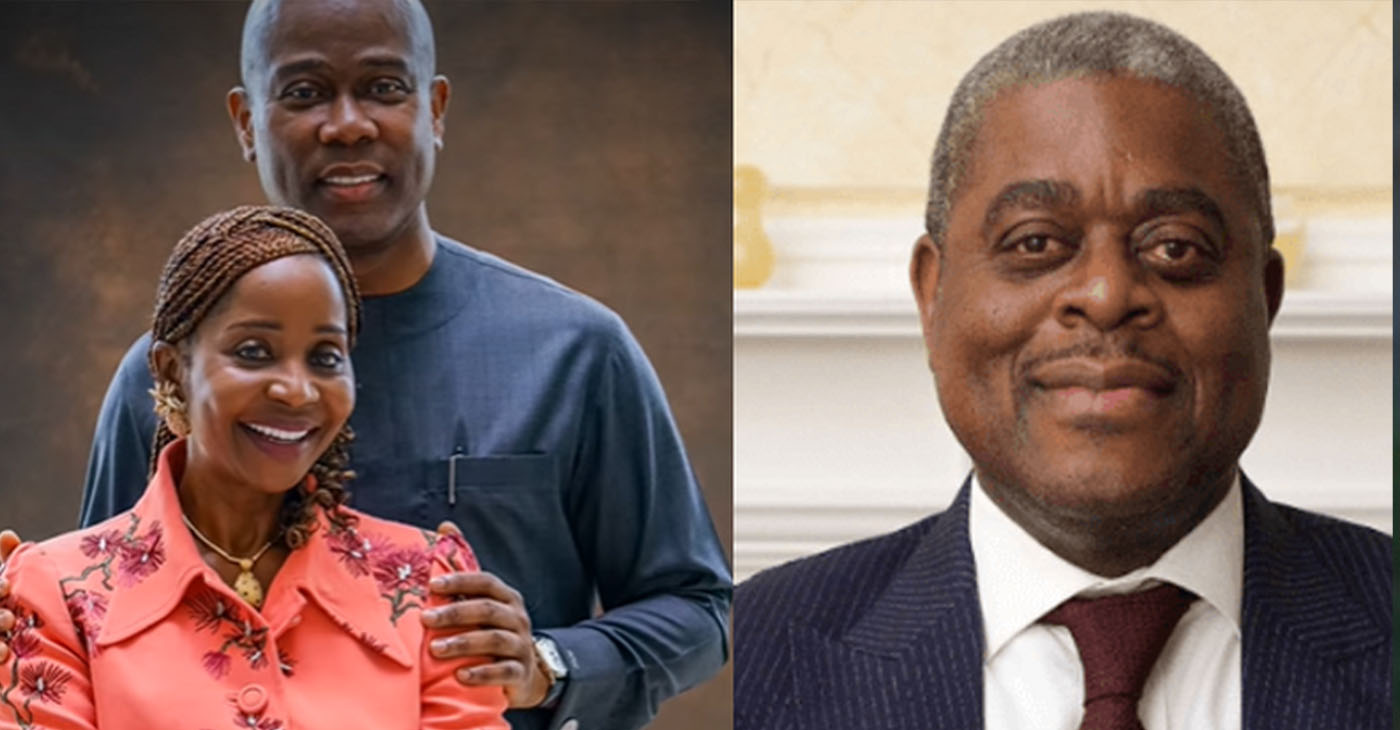
By Post Staff
The co-founder of one of Nigeria’s largest banks died with his wife, son and three others when the helicopter transporting them from Palm Springs, Ca., to Boulder City, Nev. to attend the fifty-eighth SuperBowl at the stadium outside Las Vegas crashed on Feb. 9.
According to the San Bernardino County Sheriff’s Dept., the crash occurred near Nipton, on the edge of the Mojave Desert Preserve. The poor weather conditions — rain, wind and snow showers—may have contributed to the accident, although the investigation is not complete. All six aboard were killed
Herbert Wigwe, 57, founded Access Bank in 1989, and it became the country’s largest competitor, Diamond Bank in 2018.
More recently, Wigwe was planning to open a banking service in Asia this year after making successful expansions to other parts of Africa, including South Africa, Kenya, and Botswana.
Nigerian President Bola Tinubu described Wigwe’s death as an ‘overwhelming tragedy.”
Oakland resident and Nigerian immigrant Kayode Gbadebo agrees with Tinubu. He met Wigwe in Nigeria but crossed paths with him in London in 2006. Wigwe, he said, “took risks.”
He was young and people thought he couldn’t do what he intended, which was not so much about money but community.
“He was more like Jesus in washing the feet of the poor– Wigwe was culturizing community,” Gbadebo said.
“There will never be another like him. This is a deep, deep loss” and he hopes everyone will eventually “be comforted.”
He was also disappointed that a replacement has already been named even before Wigwe is buried. “It is not reasonable. You don’t want a vacuum, but it’s” not fair to the family, Gbadebo observed.
Wigwe had also been working to solve the migration issues from African countries, believing that “investing in higher education was key to controlling mass migration, which “is destabilising countries across the world,” BBC News reported.
“We need to take a holistic approach to address global migration, starting with our traditional framework for international development,” Wigwe wrote.
To that end, according to BBC News, Wigwe was preparing to open Wigwe University in Niger, where he was from.
“The best place to limit migration is not in the middle of the Mediterranean or the English Channel or the Rio Grande. It is in the home countries that so many migrants are so desperate to leave,” he wrote, saying his university was an opportunity for him “to give back to society.”
Besides Wigwe and his wife, Chizoba Nwuba Wigwe, and one son, two crew members and Bimbo Ogunbanjo, former group chairman of the Nigerian Exchange Group Plc, were also killed in the crash.
According to Wikipedia, three other children survive Wigwe.
In his statement reported in People magazine, Tinubu described Wigwe as “a distinguished banker, humanitarian, and entrepreneur.”
“I pray for the peaceful repose of the departed and ask God Almighty to comfort the multitude of Nigerians who are grieving and the families of the deceased at this deeply agonizing moment,” the president said.
He added, “Their passing is an overwhelming tragedy that is shocking beyond comprehension.”
Besides feeling the tremendous loss, Gbadebo fears the disorder and greed that will follow. “It’s a mess,” he said.
People magazine, BBC News and Wikipedia were the sources for this report.
Activism
No Valid Reason for Failing to Condemn Hamas’ Act of Terrorism
On Oct. 7, 2023, Hamas terrorists crossed the Israel-Gaza border and indiscriminately slaughtered Israeli civilians in their homes. They killed nearly 300 young people at a music festival and took at least 200 hostages including 30 children. The atrocities they committed included massacres of families, abduction of the elderly and children, burning of babies and rapes of women.
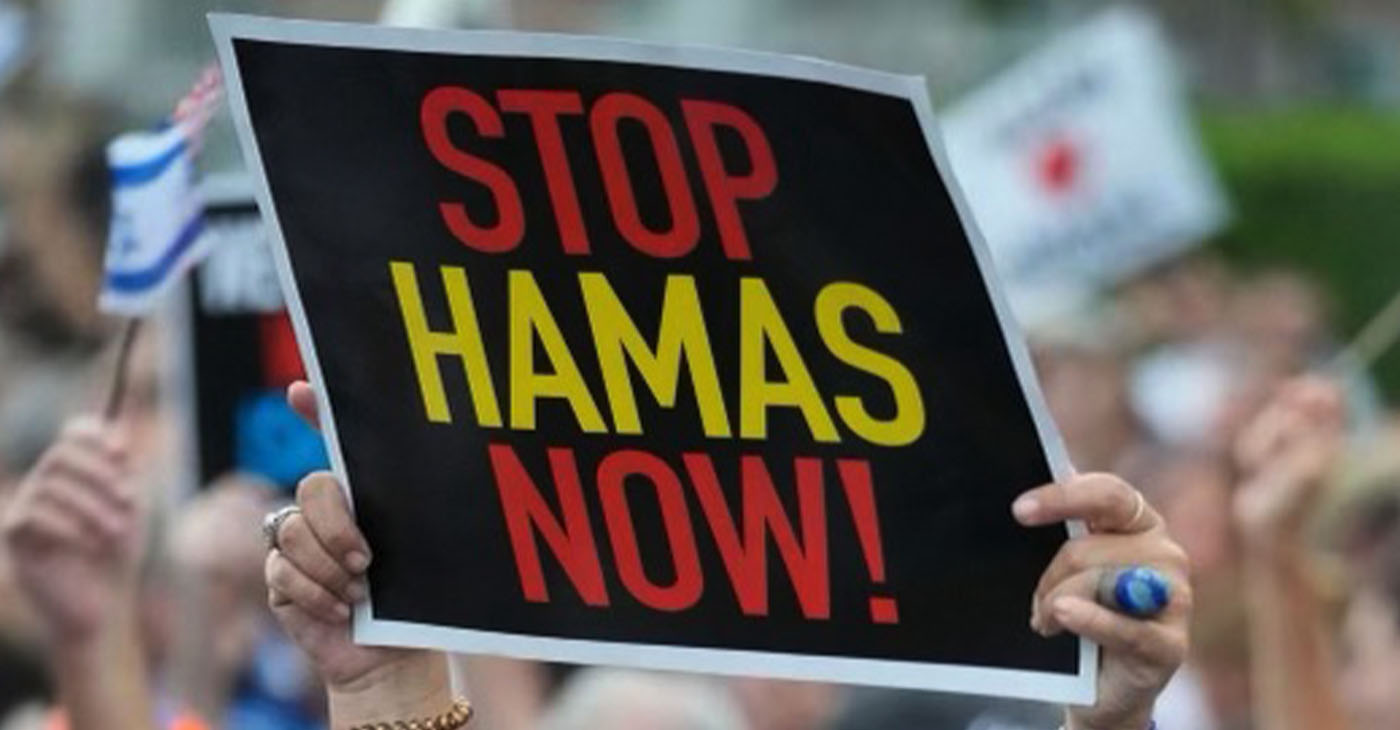
By Joe W. Bowers Jr.
California Black Media
OPINION
On Oct. 7, 2023, Hamas terrorists crossed the Israel-Gaza border and indiscriminately slaughtered Israeli civilians in their homes.
They killed nearly 300 young people at a music festival and took at least 200 hostages including 30 children. The atrocities they committed included massacres of families, abduction of the elderly and children, burning of babies and rapes of women.
The horrific surprise attack deserves universal and unequivocal condemnation. President Joe Biden called what Hamas did “an act of sheer evil” and pledged to defend the lives of Israelis and Jewish Americans.
He said, “Let there be no doubt. The United States has Israel’s back. We’ll make sure the Jewish and democratic state of Israel can defend itself today, tomorrow, as we always have.”
Hamas killed approximately 1,400 people including 32 Americans. Citizens from 40 different countries including the United Kingdom, France, Mexico, and Thailand were killed or reported missing.
Hamas fighters breached Israel’s border defenses on the final day of Sukkot while soldiers were away due to the holiday and launched attacks on 22 towns outside the Gaza Strip. This security lapse has been described as a catastrophic failure of Israel’s intelligence agencies..
Hamas is an extremist Islamist militant organization that has governed the Gaza Strip since 2007. It is recognized as an Iranian-backed terrorist group by the U.S. and the European Union and has a long history of violence against Jews and Palestinians, the latter of whom they often use as human shields.
While there have been plenty of groups who have unequivocally condemned the massacres, there are a number who haven’t, including organizations such as the Democratic Socialists of America (DSA), Black Alliance for Peace, Red Nation, and independent Black Lives Matter (BLM) chapters (excluding the national Black Lives Matter Global Network Foundation).
The DSA San Francisco chapter put out a statement on Oct. 9 that said, “Socialists support the Palestinian people’s, and all people’s, right to resist and fight for their own liberation. This weekend’s events are no different.”
Student organizations at a number of universities and colleges in California signed a solidarity statement titled “Resistance Uprising in Gaza” from Students for Justice in Palestine (SJP). The statement attributes the violence of the Hamas attack to what it refers to as Israeli apartheid and occupation.
The SJP statement written by Bears for Palestine at UC Berkeley says, “We support the resistance, we support the liberation movement, and we indisputably support the Uprising.” Essentially, these students are indirectly associating themselves with Hamas’ barbaric acts under the guise of “resistance.”
Signing the statement were 51 student organizations including those from Stanford, UC Berkeley, UCLA, UC Davis, UC San Diego, CSU Sacramento, and USC.
A statement signed by 34 Harvard student organizations said, “We, the undersigned student organizations, hold the Israeli regime entirely responsible for all unfolding violence.”
Many university leaders, where these students are enrolled, have been guilty of failing to unequivocally condemn Hamas and for inadequately addressing their students’ expressed support for Hamas.
Several Stanford faculty members, including three Nobel laureates, condemned Stanford’s administrators’ weak response to acts of terrorism and the expression of pro-Hamas sentiments by students on campus.
Israel unilaterally withdrew from Gaza in 2005. It dismantled 21 Israeli settlements in the territory and handed them over to the Palestinian Authority.
The assault by Hamas on Oct. 7 was not an ordinary clash with Israel. Hamas’ actions resulted in the deadliest single day for Jews since the Holocaust.
While there are valid reasons for protesting Israel’s treatment of Palestinians and a real reckoning with the Israeli government on its policies is long overdue, nothing justifies Hamas’ attack.
Israelis who were killed largely had nothing to do with the conditions of Palestinians in Gaza. Some of the victims weren’t even Israeli — they were just tourists.
The students blaming Israel for the atrocities committed by Hamas have faced criticism. Some groups have withdrawn their endorsements because of the backlash aimed at them. Others have doubled down on their activism. SJP held a “National Day of Resistance” on several campuses.
Several CEOs have asked Harvard to disclose a list of members from the organizations assigning responsibility to Israel to insure they do not hire any of their members. A Berkeley law professor has also urged firms not to hire his students who have publicly blamed Israel for the war.
This California Black Media report was supported in whole or in part by funding provided by the State of California, administered by the California State Library.
-

 Activism4 weeks ago
Activism4 weeks agoOakland Post: Week of March 20 – 26, 2024
-

 #NNPA BlackPress3 weeks ago
#NNPA BlackPress3 weeks agoCOMMENTARY: D.C. Crime Bill Fails to Address Root Causes of Violence and Incarceration
-

 #NNPA BlackPress3 weeks ago
#NNPA BlackPress3 weeks agoMayor, City Council President React to May 31 Closing of Birmingham-Southern College
-

 #NNPA BlackPress3 weeks ago
#NNPA BlackPress3 weeks agoCOMMENTARY: Lady Day and The Lights!
-

 #NNPA BlackPress3 weeks ago
#NNPA BlackPress3 weeks agoFrom Raids to Revelations: The Dark Turn in Sean ‘Diddy’ Combs’ Saga
-

 #NNPA BlackPress3 weeks ago
#NNPA BlackPress3 weeks agoBaltimore Key Bridge Catastrophe: A City’s Heartbreak and a Nation’s Alarm
-

 #NNPA BlackPress3 weeks ago
#NNPA BlackPress3 weeks agoBaltimore’s Key Bridge Struck by Ship, Collapses into Water
-

 Activism3 weeks ago
Activism3 weeks agoOakland Post: Week of March 27 – April 2, 2024



